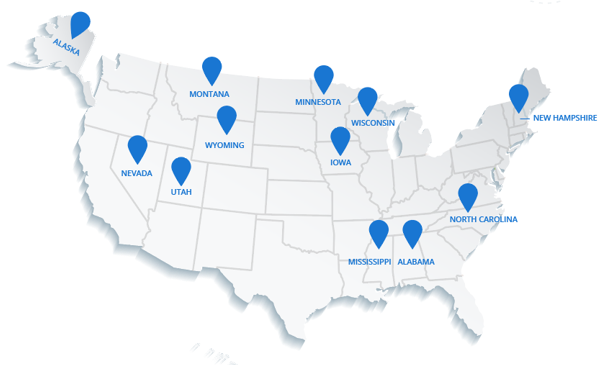Black Clinician in Healthcare
The racial diversity of nurses is not only important from a professional standpoint, but also from a demographic standpoint. Black nurses are a critical part of the nursing industry. While the US census reports the population as 13.4% Black, this is not reflected in the healthcare industry. The 2022 National Nursing Workforce Survey found that only 6% of the Registered Nurse workforce identify as Black. This lack of representation in the industry reflects systemic issues with diversity in medicine. America's overall health and clinical professions depend on the continuous promotion of diversity in education, career growth, and employment.
Diversity
Only 36% of active physicians are female according to the Association of American Medical Colleges.
Only 5% of physicians identify as Black or African American.
Only 6% of physicians identify as Hispanic.
It is vital that Black clinicians are represented in healthcare. They bring a unique perspective to patient care informed by their lived experiences. Black clinicians also play an important role in promoting cultural competence within healthcare organizations.
Despite the importance of Black clinicians, they are often underrepresented in healthcare. This can be due to a number of factors, including institutional racism, the lack of diversity in healthcare leadership, and the lack of mentorship and support for Black clinicians.
There are a number of ways to increase the representation of Black clinicians in healthcare. Organizations can start by diversifying their leadership teams and appointing more Black clinicians to critical positions. They can also provide mentorship and support for Black clinicians, creating an inclusive and welcoming environment for all.
3 Strategies for Increasing Cultural Diversity in Healthcare
Nurse Education
There are a number of ways in which the healthcare industry can increase cultural diversity. One way is to provide cultural competency training for all healthcare professionals. This training can help professionals to better understand the needs of patients from diverse backgrounds and provide culturally sensitive care.
Another way to increase cultural diversity in healthcare is to develop partnerships with community organizations that serve diverse populations. These partnerships can help to increase access to care and improve the overall quality of care for all patients.
Finally, healthcare organizations can also promote cultural diversity by hiring a more diverse workforce. A diverse workforce brings with it a wealth of different perspectives and experiences, which can help to improve the quality of care for all patients.
Workplace Diversity
Cultural diversity is an important issue in healthcare. A lack of diversity can lead to poor communication and a lack of understanding between patients and providers. This can result in poor health outcomes and a lack of trust between the two groups.
There are a number of ways that the healthcare industry can increase cultural diversity. One way is to recruit a more diverse workforce. Another way is to provide training to employees on how to effectively communicate with people from different cultures. Additionally, healthcare organizations can create outreach programs to engage with community members from different backgrounds.
By increasing cultural diversity, the healthcare industry can improve communication, build trust, and ultimately provide better care for all patients.
Organizations
Luckily there are organizations that are working towards a brighter future for nursing. Here is a list of organizations focused on changing the medical industry into a more welcoming and inclusive environment for everyone.
Society of Black Academic Surgeons
National Black Nurses Association
Conclusion
Black representation in the medical field is more important than ever. Over the past two years, we have seen how the coronavirus pandemic has disproportionately affected black people. Better health care for the black community is essential, and the commitment to support diversity in health care providers has never been more important. With more black nurses in the field, the industry can better address and implement solutions to promote diversity. At DirectShifts, as we celebrate Black History Month, let's think about how to combat racism in medicine and how to address underrepresentation in the medical field.
.png?width=50&height=50&name=Cube-Logo-150x150%20(1).png)
January 31, 2023




Comments